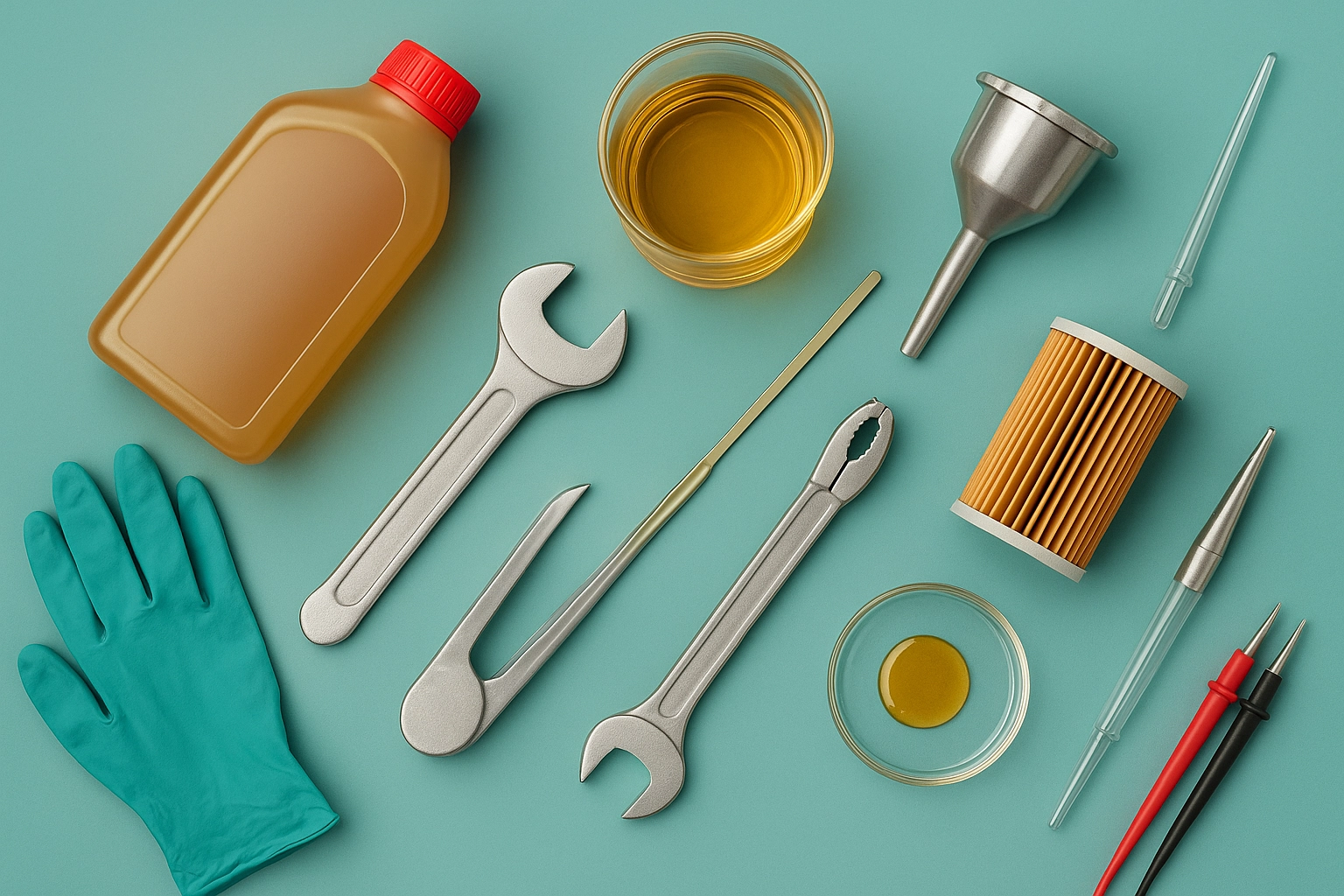SAE J3200 Lubricant Oxidation Endurance Test
The SAE J3200 lubricant oxidation endurance test is a critical procedure used in the automotive and aerospace industries to assess the oxidative stability of engine oils. This test simulates real-world conditions under which engine oils operate, focusing on their ability to resist degradation due to oxidation over time. Oxidation leads to the formation of sludge, varnish, and other deposits that can severely impact engine performance and longevity.
The SAE J3200 test is particularly important for new formulations aimed at meeting stringent emissions regulations and increasing fuel efficiency. By subjecting the lubricant to controlled oxidative conditions, this test provides insights into the oil's potential lifespan in service environments where high temperatures and contaminants are present.
During the SAE J3200 test, a standardized sample of engine oil is exposed to a specific temperature and oxygen environment. The test duration can vary depending on the desired outcome, but it typically simulates prolonged use under severe conditions. The key parameters monitored include viscosity change, color shift (indicative of oxidation), acidity increase, and insolubles formation.
The results of this test are crucial for quality assurance teams in ensuring that lubricants meet not only current regulatory standards like SAE J3001 but also internal performance targets. Compliance with these tests can significantly reduce warranty claims and improve brand reputation among consumers who demand reliability from their vehicles.
Compliance with the SAE J3200 test is particularly important for manufacturers targeting markets in regions where stringent emissions regulations are enforced, such as Europe and parts of Asia. The test helps ensure that lubricants perform optimally under extreme conditions without contributing to increased tailpipe emissions or engine wear.
Furthermore, the SAE J3200 test provides a robust framework for R&D departments to innovate on new base oil technologies and additive packages. By understanding how different components interact within this oxidative environment, developers can fine-tune their formulations to enhance not only stability but also efficiency and eco-friendliness.
Given its importance in the development of next-generation lubricants, the SAE J3200 test has become a cornerstone for quality assurance protocols across various sectors including automotive manufacturing, after-market suppliers, and original equipment manufacturers (OEMs). The test's rigorous nature ensures that only the most reliable products make it to market.
For procurement teams involved in sourcing lubricants from multiple suppliers, adherence to SAE J3200 standards serves as a benchmark for selecting high-quality vendors. It provides assurance that the lubricant will perform consistently across different vehicle models and operating conditions.
Eurolab Advantages
Eurolab offers unparalleled expertise in performing SAE J3200 tests, ensuring accurate results every time. Our state-of-the-art facilities are equipped with the latest technology and calibrated instruments to deliver precise measurements that comply with international standards.
Our team of highly qualified professionals ensures that each test is conducted under controlled conditions, replicating real-world scenarios as closely as possible. This level of precision helps our clients make informed decisions about their lubricant choices.
We pride ourselves on our commitment to customer satisfaction and provide detailed reports tailored to the specific needs of quality managers, compliance officers, R&D engineers, and procurement specialists. Our comprehensive testing services not only meet but often exceed industry expectations, providing valuable insights into product performance.
With Eurolab, you can trust that your lubricants will undergo rigorous evaluation before reaching the market. This ensures reliability and longevity, contributing to overall vehicle health and reducing maintenance costs for end-users.
Quality and Reliability Assurance
The SAE J3200 test is essential for maintaining high standards of quality and reliability in automotive lubricants. By adhering to this test method, manufacturers can ensure that their products meet the stringent requirements set by regulatory bodies and industry associations.
Quality assurance through the SAE J3200 test involves several key steps. First, samples are prepared according to specified guidelines to simulate real-world engine operating conditions accurately. These samples are then subjected to controlled oxidation environments where temperature and oxygen levels mimic those found in engines during extended use.
The testing process closely monitors changes in viscosity, acidity, color, and insoluble matter formation over time. Each parameter provides critical information about the lubricant's resistance to oxidative degradation. For instance, a stable viscosity is crucial for maintaining proper engine lubrication, while reduced acidity indicates better protection against acidic by-products that can harm engine components.
Color changes are particularly indicative of oxidation levels; darker colors generally suggest higher oxidation rates which may lead to sludge formation and decreased performance over time. Monitoring insolubles helps determine the extent of varnish deposits potentially forming inside engines, impacting efficiency negatively if left unchecked.
The results from these tests form part of broader quality assurance programs aimed at ensuring consistency across batches produced by different facilities or suppliers. Compliance with SAE J3200 standards also supports efforts towards sustainability goals by reducing waste and promoting longer-lasting products that contribute positively to environmental conservation initiatives.
Competitive Advantage and Market Impact
The SAE J3200 lubricant oxidation endurance test plays a pivotal role in establishing competitive advantages within the automotive industry. By demonstrating superior performance through this rigorous testing, companies can differentiate their products effectively among competitors.
Manufacturers who invest in thorough quality assurance processes using tests like SAE J3200 gain several strategic benefits that enhance their market position:
- Improved Reputation: Consistent compliance with industry standards enhances customer trust and loyalty.
- Enhanced Product Lifecycle: Lubricants that pass these stringent tests tend to last longer, reducing maintenance intervals and associated costs for users.
- Better Environmental Impact: Products known for their durability are often more sustainable, appealing to environmentally conscious consumers.
- Regulatory Compliance: Meeting regulatory requirements ensures smoother market entry in various regions globally.
In an increasingly competitive marketplace, these factors contribute significantly to a company's success. They enable firms to attract more business opportunities and maintain leadership positions despite tough competition from newer entrants into the industry.





